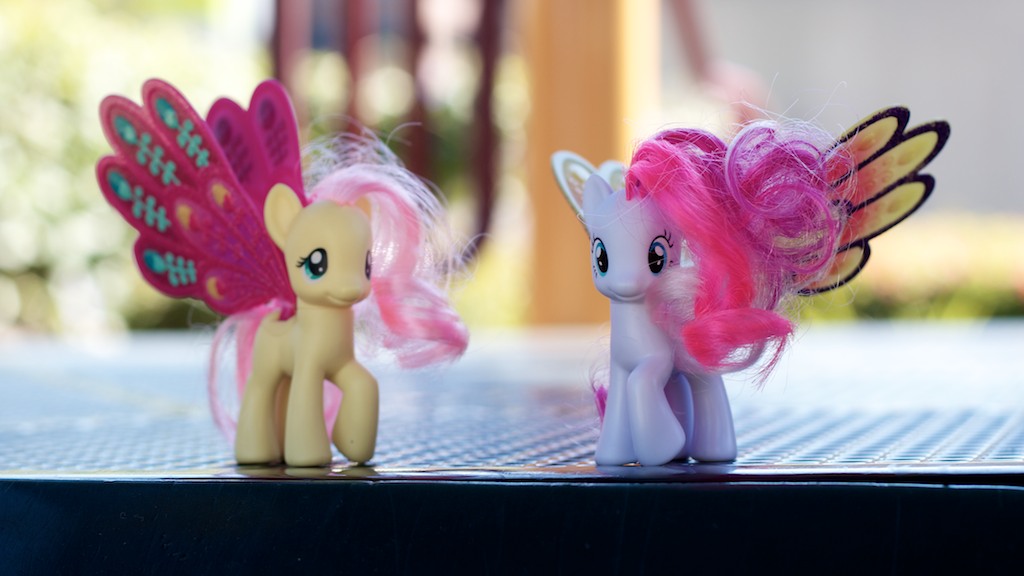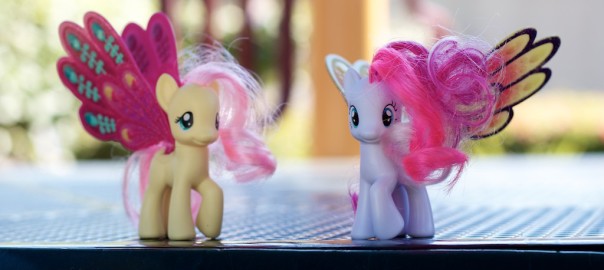Today, Megan asks an important question for anyone who has kids, ponies or dragons at home:
My 36-month-old has gone from pretending she and her stuffed animals are cartoon characters (which gave us some laughs at first) to now assigning names like “Rainbow Dash” to handfuls of random kids she meets at the park, and then chasing after them screaming, “Hurry! Hurry! We have to save you from the dragons!” Is this normal imaginative play, or certifiably crazy? Should I intervene and bring her back to reality?
– Megan
First of all, don’t worry about it. Andy’s grandmother used to call every single driver she saw on the road “George,” and that was when she was a 948-month-old. So for a child as young as your daughter, this kind of play is totally normal.
During the preschool years, pretend play tends to develop from a solitary activity to one that is shared and co-constructed with peers. Creating pretend scenarios with other kids is a complex practice that requires communicating, negotiating control, and building a story. Figuring all that stuff out takes time, and it appears that you’ve caught your daughter in a state of transition. She’s really interested in sharing her pretend play with the kids she meets at the park, but she doesn’t yet have the skills to structure coherent stories with them. It doesn’t help that the playmates she’s chasing are unfamiliar to her, because it’s easier to engage in more sophisticated play with friends that you already have a rapport with to build on.
So should you intervene?

Sure, but only as another playmate. Seriously. If your daughter decides she’s a My Little Pony, strap on your make-believe saddle and join in the fun. (But probably not the 30-year-old-dudes-making-erotic-“Brony”-fan-art kind of fun.) Because you have so much more play experience than both your daughter and the kids she’s trying to play with, you have the ability to take her seemingly nutty behavior and use it as the foundation to build an elaborate, coherent pretend story with her. Watching you interact in high-level ways with your imagined scenarios will help her build the skills she needs to more effectively pretend with peers.
But remember to let your child take the lead in play. Observe how she is playing and enter under pretenses that she has already established. Resist the urge to take over and control the play – you’ll both get more out of it that way.
Play has lots of great benefits to kids. It helps children express their feelings, understand reality, and develop friendships. Plus, it’s just plain fun. So it – much like a fully-grown male human who believes he’s engaged to a cartoon horse named Twilight Sparkle – doesn’t always have to make sense.





